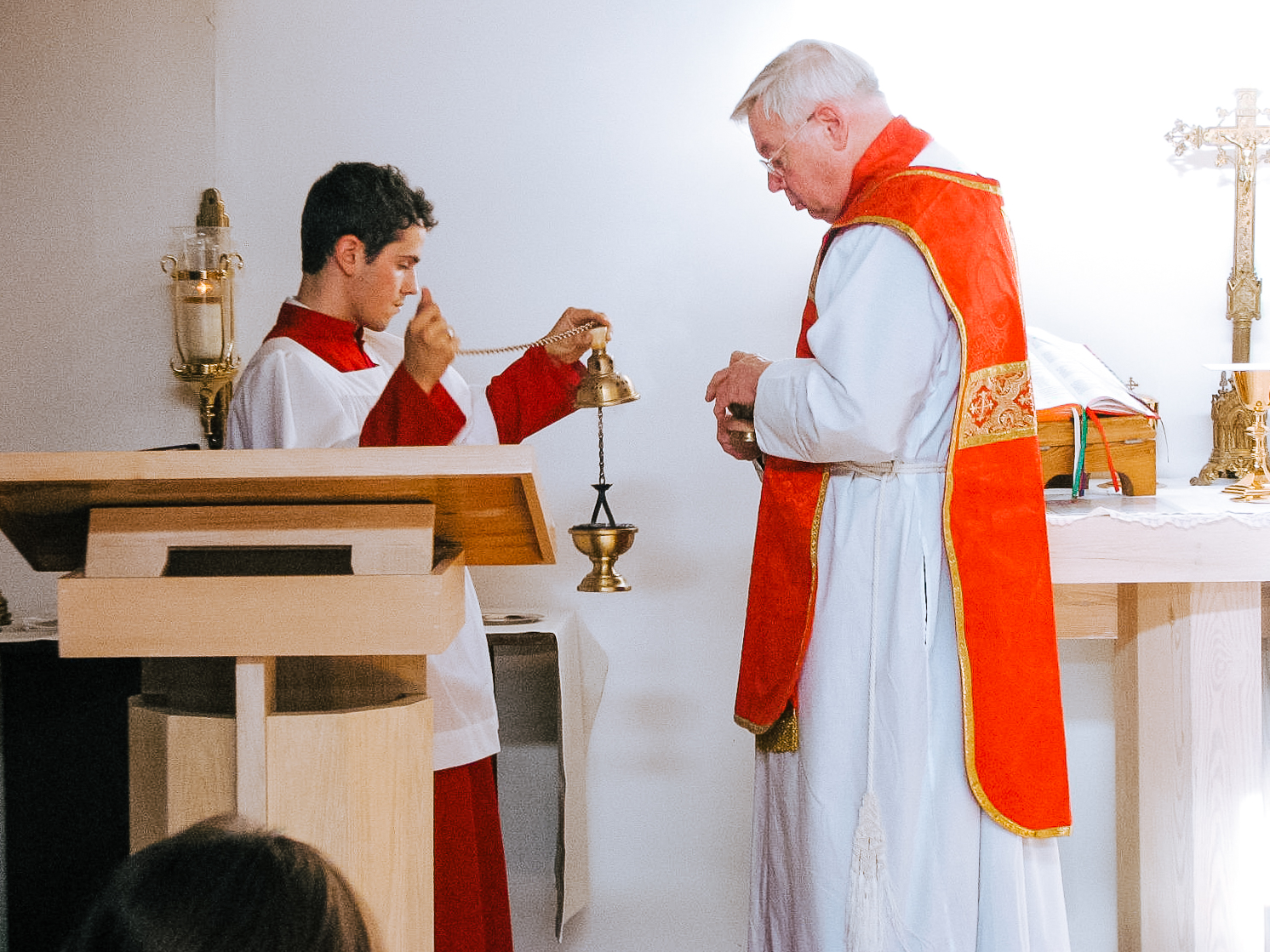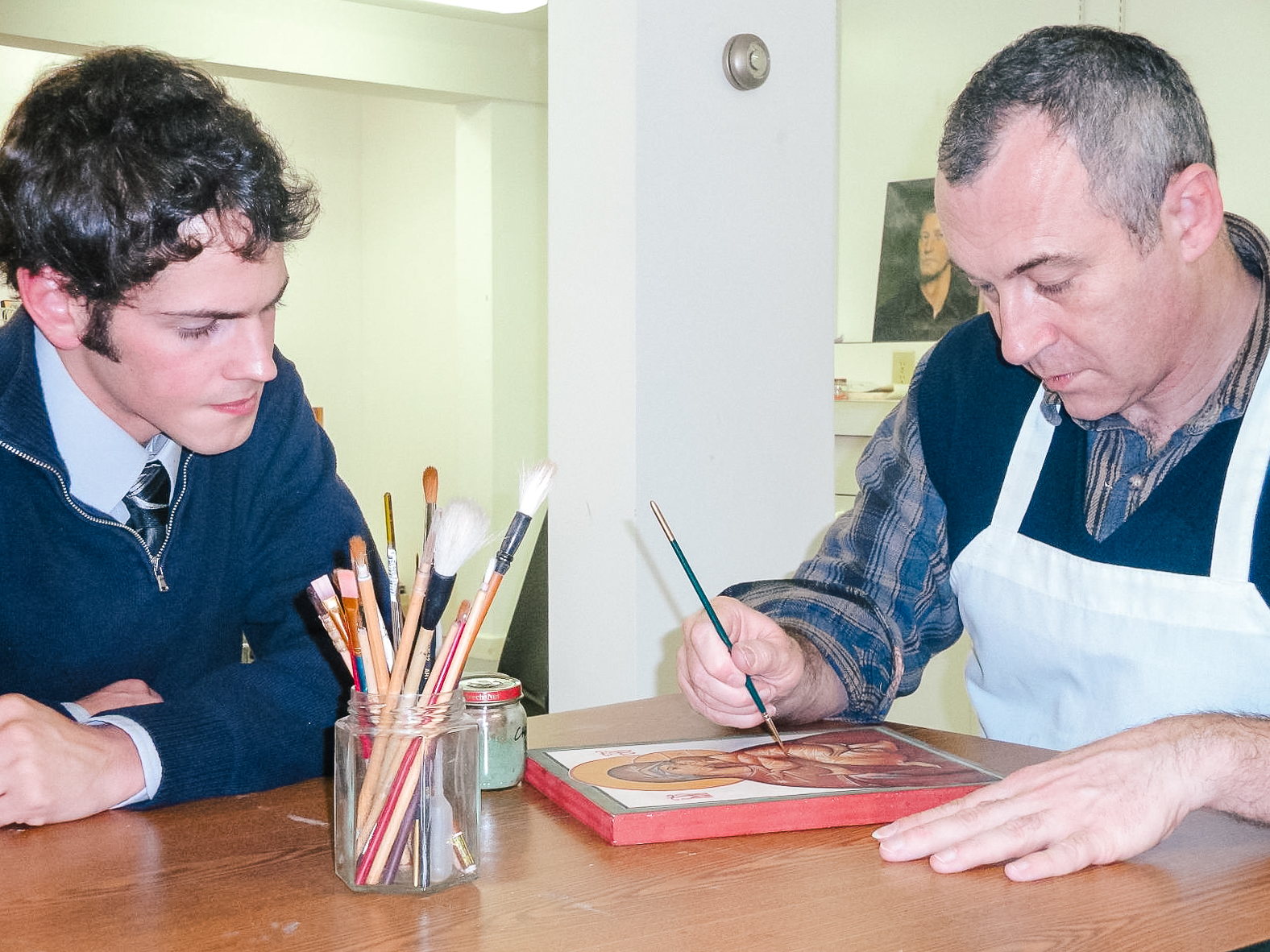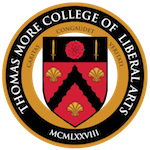By Peter Rao ’24

Most conscientious college students think about what will follow graduation. At Thomas More College, many upperclassmen find themselves staring at the finish line once the Rome semester has come and gone, contemplating what should come next. In moments like these, communication with alumni proves invaluable. For students, one of the best ways to figure out the path to take after graduation is to remind oneself of what others have done before. With this in mind, we reached out to Dr. John Martin ’11 to ask a few questions about his time at Thomas More College and how he dealt with the challenge of life after graduation.
Could you explain a little about your background and why you chose to attend Thomas More College?
I was homeschooled in Maine, raised by great Catholic parents. I went to TMC because I was hoping to go to seminary afterward in the Diocese of Portland. Little did I know, I would fall in love with an amazing young woman during my Rome semester. Now, after ten years of marriage, we have five children. I had to pivot during my junior year and start taking extra prerequisite classes so that I could enter chiropractic school after graduation.

Why did you become a chiropractor? What is the nature of your work?
I had a good experience with chiropractors in Maine, since my aunt and uncle were chiropractors and they helped me with martial arts injuries. My wife and I wanted to move to Pennsylvania and raise our family close to hers, so I was interested in a profession that I could take anywhere. I started taking online classes the summer between my junior and senior year to catch up on prerequisites. I also took courses at the local community college throughout my senior year, in addition to my philosophical studies. The professors at TMC were very accommodating to my scheduling challenges.
My work has changed over the years. I realized that I didn’t like private practice and billing insurance, although I had to do that for quite a while. Now, I work onsite at factories, treating employees with sophisticated soft tissue techniques in order to prevent and resolve injuries without a company needing to open a worker’s compensation claim or have an OSHA recordable injury. I also do some house calls on the side.
Additionally, I am the part-owner of a startup distillery. It’s slow going, but I’m hoping it will be a place where my kids can work someday.
“The more teachers, business leaders, artists, and homeschooling moms who are versed in the western Catholic intellectual tradition, the better. It’s like the Irish monks who kept literacy and learning alive while Rome fell. That’s what the education at TMC is for.”
–Dr. John Martin ’11
How did your time at the College help prepare you for your job?
At TMC, you learn how to learn, study, and articulate your thoughts. I am constantly learning new things about government regulations, sales, and managing expectations from motor vehicle accident insurance companies—not to mention learning and navigating the regulations of the three government agencies who look over our shoulder at the distillery! After studying Aristotle, Kant, and Nietzsche, learning legal and technical details has been easy. In my profession, evidence-based medicine is increasingly popular, but you must have good judgment and principles of discernment if you don’t want to get swept away with every new trend.
I don’t think the skills necessary for success depend on your college major. If you are willing to learn and work hard and network with others, you can succeed anywhere. That said, my time at TMC served me very well—but there is a bigger picture. The western world is basically falling apart. The more teachers, business leaders, artists, and homeschooling moms who are versed in the western Catholic intellectual tradition, the better. It’s like the Irish monks who kept literacy and learning alive while Rome fell. That’s what the education at TMC is for.

Do you have any advice for students as they consider life and career paths after college?
Find successful people, network with them, and learn from them. Check out trade schools—welding, HVAC, plumbing, electric. You’ll never be out of work or outsourced, and you can get certifications for almost no debt. This also lets you pick where you want to live—whether by family, by a good parish, and so on. Graduate school and professions such as law and medicine are great too, but you must be ready to deal with a lot of student loans. Don’t make that choice lightly. Of course, teaching and academia is always attractive after TMC, but be sure to talk to alumni who are teachers and professors to learn what their challenges are.
Is there anything else you would like to share?
Back in my ancient days at TMC, starting in ’07 and graduating in ’11, no one had smartphones, and I am so grateful for that. If I had downtime, I literally had to wander around and find someone to talk to. Turn off the phone as much as possible and don’t read the news. TMC is the green world. You’ll have time to deal with all the garbage later. Soak it all in. Every turn of the season brings back amazing memories from TMC, even eleven years out. I couldn’t be happier with my life now, with my wife and kids, but TMC was a magical time that hardly seems real. Take it all in and enjoy it!
These comments have been edited for length and clarity.
For further reading:
From Literature to Motorcycles: An Interview with Richard Worsham ’07
How TMC Prepared Me to Work in Political Advocacy: An Interview with Helena Davis ’18
